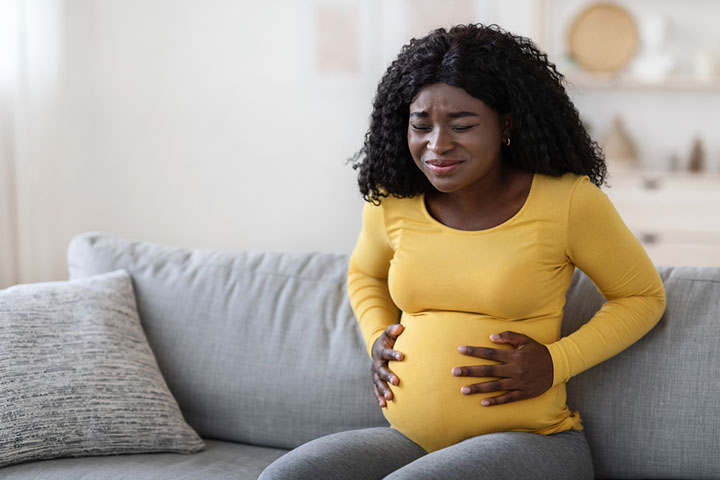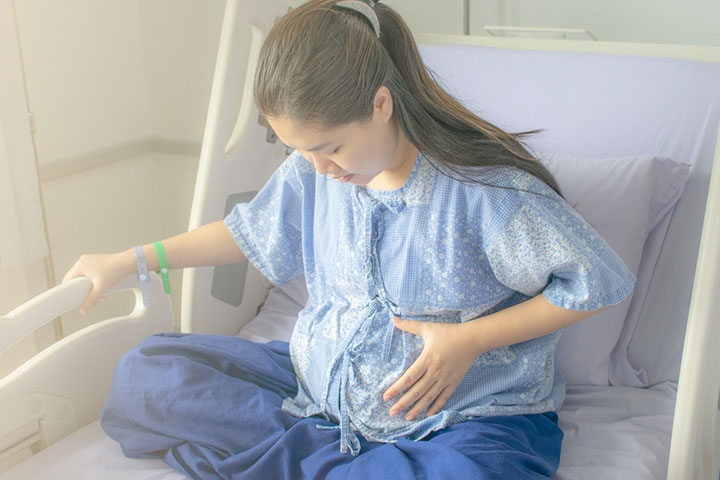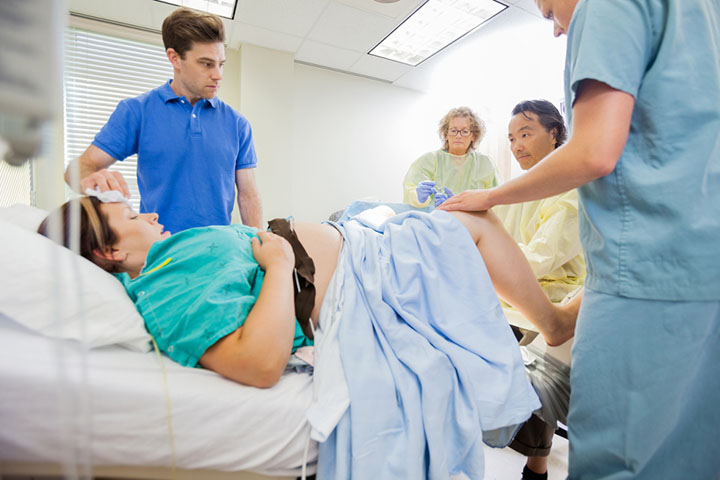
Image: Shutterstock
Welcoming a new life into the world is a time of profound joy and amazement. Yet, this transformative experience can bring forth a variety of physical and emotional adjustments. Amidst these changes emerges postpartum shaking, an occurrence that, while disconcerting, is frequently within the realm of normalcy. In the following article, we will explore the nature of postpartum shaking, its underlying causes, and strategies to navigate it should you encounter it. Read on to know more!
What Is Postpartum Shaking?
Postpartum shaking, often referred to as postpartum tremors or the colloquial “chills,” is a phenomenon observed in which new mothers undergo involuntary shaking or shivering shortly after childbirth (1). This trembling can span from subtle to intense and tends to be transient, enduring for a brief span of minutes to a couple of hours. Typically, it manifests within the initial hours following delivery and may be accompanied by sensations of coldness or chills.
What Causes Postpartum Shaking?
The exact cause of postpartum shaking isn’t fully understood, but it’s believed to be a result of hormonal changes and the body’s response to the intense physical and emotional experience of childbirth. During labor and delivery, your body goes through a series of intense contractions and changes, which can lead to a drop in body temperature and trigger the shaking response.
Causes Of Shaking During Labor
Image: Shutterstock
Shaking during labor can also occur for similar reasons. As your body works hard to bring your baby into the world, the adrenaline and other stress hormones released can lead to shivering or shaking. The pain and anxiety associated with labor can also contribute to this physical response.
Is Postpartum Shaking Normal?
Yes, postpartum shaking is generally considered normal, especially if it occurs shortly after childbirth. The sudden drop in hormones, combined with the exhaustion and physical strain of labor, can trigger this reaction. While it might be concerning to experience shaking, it’s essential to remember that your body has just undergone a significant event, and these tremors are often a natural response.
What You Can Do
Image: Shutterstock
If you find yourself experiencing postpartum shaking, rest assured that there are steps you can take to alleviate discomfort and soothe any concerns you might have. Here’s a closer look at each of these strategies:
- Stay Warm
Keep warm blankets nearby to help regulate your body temperature. Shivering can lead to a feeling of coldness, so adding layers can provide comfort.
- Hydrate And Nourish
Drinking fluids and eating nourishing snacks can help replenish your energy levels and stabilize your body.
- Relaxation Techniques
Practicing relaxation techniques can work wonders in calming your body and reducing shaking. Deep breathing exercises, meditation, or even engaging in gentle stretching can promote a sense of calm and tranquility. These techniques can help soothe the physical and emotional strain associated with postpartum shaking.
- Embrace Skin-To-Skin
Engaging in skin-to-skin contact with your baby offers benefits beyond just bonding. Holding your baby close not only fosters a strong connection but can also help regulate your body temperature. The warmth exchanged during skin-to-skin contact can provide comfort and stability, easing the shivering sensation.
- Communicate
Open communication with your healthcare provider and medical team is paramount. While postpartum shaking is often a normal response, it’s crucial to keep your medical team informed about any symptoms you’re experiencing. They can provide guidance, reassurance, and ensure that there are no underlying issues contributing to the shaking.
- Seek Support
Know that you’re not alone in facing postpartum shaking. Connecting with fellow new mothers who’ve encountered similar situations can offer profound reassurance. Consulting your healthcare provider can also offer valuable insights into the phenomenon. Sharing your concerns and seeking advice fosters a sense of confidence and understanding as you navigate this journey.
When To Seek Medical Attention
Image: Shutterstock
In most cases, postpartum shaking is a transient and normal occurrence. However, there are instances where it’s essential to seek medical attention:
- Fever
If your shaking is accompanied by a fever, it could be a sign of infection, and you should consult your healthcare provider.
- Severe Shaking
If your shaking is severe and persistent, or if it’s accompanied by other concerning symptoms, it’s best to contact your healthcare provider.
- Difficulty Breathing
If you have trouble breathing or your shaking is causing you significant distress, seek medical help immediately.
Embarking on the journey of motherhood is an unparalleled and transformative encounter. Postpartum shaking constitutes just one facet of this voyage, and while it may provoke unease, it frequently represents a natural reaction to the profound physical and emotional shifts your body undergoes during childbirth. Keep in mind that your body has achieved an extraordinary feat, and these tremors stand as a testament to its remarkable resilience. Should uncertainty arise or severe symptoms manifest, don’t hesitate to seek guidance and reassurance from your healthcare provider. Approach your postpartum experience with patience, self-nurturing, and the understanding that you’re not traversing this path alone.















